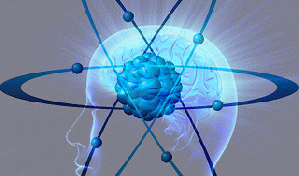by @IOTAGLOBAL
[This is the third article in the series Why Everything You Know about Your "Self" Is Wrong . The series explores how our understanding of selfhood affects our sense of individuality, our interpersonal relationships, and our politics.]
As suggested in the two preceding posts in this series, selfhood was on the ropes even before postmodernism delivered the knockout blow.
Postmodernism's Coup de Grace to the Self
Humpty Dumpty sat on a wall,
Humpty Dumpty had a great fall.
All the king's horses and all the king's men
Couldn't put Humpty together again.
In recent decades, deconstructing selfhood has become a cottage industry (with headquarters in Paris). The "fall" that postmodernism has inflicted on our commonsense notion of selfhood is as irreversible as Humpty Dumpty's. Three examples follow:
While acknowledging that the philosopher David Hume scooped him by centuries, the novelist John Barth points out that the person who did things under his name decades ago seems like a Martian to him now:
How glibly I deploy even such a fishy fiction as the pronoun I, as if--although more than half of the cells of my physical body replace themselves in the time it takes me to write one book, and I've forgotten much more than I remember about my childhood, and the fellow who did things under my name forty years ago seems as alien to me now in many ways as an extraterrestrial--as if despite those considerations there really is an apprehensible antecedent to the first person singular. It is a far-fetched fiction indeed, as David Hume pointed out 250 years ago.
- John Barth
The novelist Milan Kundera exposes the common fallacy that the self can be detached from its unique history. Read Kundera's comment and you'll never again hear yourself saying, "If I were you..." without realizing that the premise can never be met so the only proper recipient of your advice is yourself.
Who has not sometimes wondered: suppose I had been born somewhere else, in another country, in another time, what would my life have been? The question contains within it one of mankind's most widespread illusions, the illusion that brings us to consider our life situation a mere stage set, a contingent, interchangeable circumstance through which moves our autonomous, continuing "self." Ah, how fine it is to imagine our other lives, a dozen possible other lives! But enough daydreaming! We are all hopelessly riveted to the date and place of our birth. Our "self" is inconceivable outside the particular, unique situation of our life; it is only comprehensible in and through that situation.
- Milan Kundera
Theater critic John Lahr observes that selfhood is a confabulation dependent on the agreement of others.
The "I' that we confidently broadcast to the world is a fiction--a jerry-built container for the volatile unconscious elements that divide and confound us. In this sense, personal history and public history share the same dynamic principle: both are fables agreed upon.
- John Lahr
The glue that holds the "jerry-built" identity together is recognition; the cement that fortifies it against disintegration is agreement. I'll return shortly to the indispensable part played by other selves in the creation and maintenance of our own.
"Self" Is a Misnomer
The very name--self--is a misnomer, and it's a whopper. How so?
At the beginning of the twentieth century, Charles Cooley observed that "We live in the minds of others without knowing it." If we live in others' minds, surely others live in ours.
The word "self" carries strong connotations of autonomy, individuality, and self-sufficiency. It's as if it were chosen to mask our interdependence. It's hardly an exaggeration to say that in buying into this notion of selfhood, humankind got off on the wrong foot.
The self does not stand alone; it is not a thing, let alone a thing in itself. Rather, we experience selfhood as a renewable capacity to construct and field identities. Like evanescent particles in a cloud chamber, the existence of the self is inferred from its byproducts.
The "self" may appear to act alone but it depends on input from other selves to manifest agency. There's more to selfhood than our genome and our menome. We've overlooked a crucial element of selfhood--inputs from other selves--without which the menome, starved for recognition, is stillborn.
As our genome needs nutrition to build our body, so our menome depends on recognition from others to create and husband a viable identity. The autonomous self and individual agency are both illusory. Contrary to the name we call it by, the self is anything but self-sufficient.
The Co-Creation of Identity
(Note: You can view every article as one long page if you sign up as an Advocate Member, or higher).





